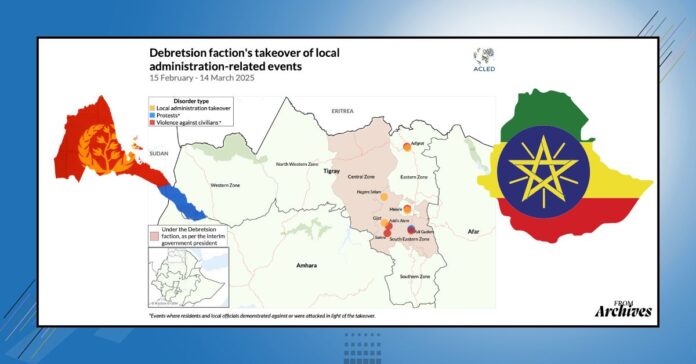A direct war between Ethiopia and Eritrea is unlikely despite rising tensions and military posturing between the eastern African neighbors, according to a new report by the Armed Conflict Location & Event Data Project (ACLED). While reports indicate Eritrean troop movements and Ethiopia’s military preparations, ACLED’s experts caution that developments do not suggest an imminent full-scale conflict.
One key reason for skepticism is the ongoing political disarray in Ethiopia’s Tigray region. The Tigray People’s Liberation Front (TPLF) remains fragmented, with different factions vying for influence. Ethiopian Prime Minister Abiy Ahmed recently called on Tigrayans to nominate a new interim president, indicating that Getachew Reda is no longer leading the Tigray Interim Administration. Meanwhile, another faction aligned with Debretsion Gebremichael has been accused of collaborating with Eritrea and the Amhara nationalist Fano militia, but ACLED’s analysis suggests these alliances remain uncertain and speculative.
The Ethiopian National Defense Force (ENDF) has also avoided direct confrontation, recently redeploying from key positions in Tigray. Eritrea, under international sanctions and diplomatic pressure, appears unwilling to engage in an open conflict with Ethiopia.
While tensions remain high, ACLED’s report states that the military and political realities on the ground do not favor a full-scale war. Both Ethiopia and Eritrea seem to recognize the risks of direct confrontation and are instead maneuvering to strengthen their positions without triggering widespread hostilities.
For now, despite ongoing speculation, ACLED’s assessment suggests that the probability of another full-scale Ethiopia-Eritrea war remains low.

